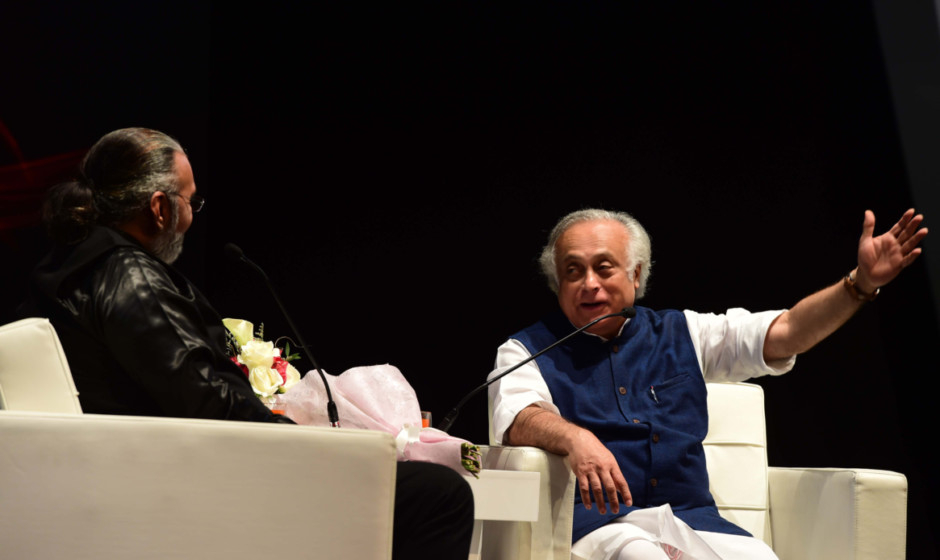
Sharjah: Little-known facets of the former Indian prime minister Indira Gandhi were revealed at the Sharjah International Book Fair (SIBF) on Sunday.
The insights came from visiting Indian author Jairam Ramesh, whose new book ‘Indira Gandhi: A Life in Nature’ portrays the late Gandhi as an environmentalist, not as the famous politician she was.
Ramesh, a politician from the opposition Indian National Congress party, to which Gandhi also belonged to, said Gandhi was “a reluctant politician”, describing her as “first and foremost, a naturalist”.
He was speaking after his morning SIBF student session, attended by hundreds of pupils, which covered a wide range of topics, from literature to economics.
Ramesh, 62, told Gulf News: “I wanted to bring out a facet of Indira Gandhi which was not known to people. She is known as an intensely political personality; she is known for her political achievements; she is known for her controversial decisions in the politics of India, like the emergency. But what is not known to people is that she was, first and foremost, a naturalist; she was an environmentalist.”
His 140,000-word alternative account of Gandhi is based on primary sources — Gandhi’s letters, speeches, notes — safeguarded mainly at the National Archives of India, among other repositories. The book also contains hard-to-find pictures of Gandhi posing with tigers and crocodiles, or climbing up a mountain or glacier.
Ramesh, a former minister of state at the Ministry of Environment and Forests, said Gandhi was a sustainability campaigner long before such advocacy became “fashionable”.
“She was the only prime minister in the world who attended the first UN conference on the environment in Stockholm and spoke there on the 14th of June, 1972… She spoke about climate change, deforestation, pollution when it was not fashionable.”
He added that Gandhi, who was an avid bird-watcher, was behind multiple conservation and anti-pollution laws and campaigns in India. “[In India] she created the ministry of environment; she created all the institutions for protecting the environment, and they are still there today. The majority of the people didn’t know this aspect of Indira Gandhi… which is still relevant today. See, today we are talking of climate change, deforestation, protection of nature — she started talking about this in the 1970s,” Ramesh said.
The book has “surprised the newer generation” in India while “old-timers” have been pleased to see a book on another side to Gandhi’s personality and work, Ramesh added. He said she has been “idolised” or “demonised” enough in her political life.
“It’s a different topic because everyone focuses on either Indira Gandhi as the ‘creator of Bangladesh’ on the one side, or Indira Gandhi as the creator of the emergency on the other. You have two diametrically opposite views. People either adore her or they criticise her. I didn’t want to do that. I just said ‘I should not impose who I think Indira Gandhi was, I must allow Indira Gandhi’s own voice to come out’.”
Ramesh said he is currently writing another biography — of Indian civil servant and diplomat P.N. Haksar, a confidant of Gandhi — which, he indicated, should be out next April.












